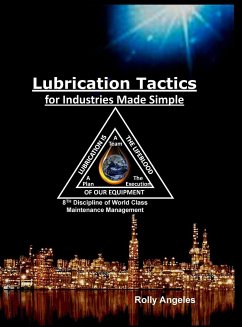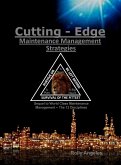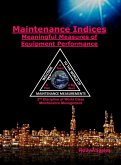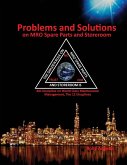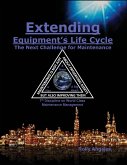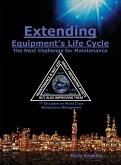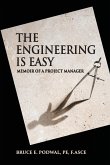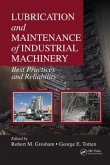The subject of lubrication is very broad indeed and is evolving continuously with new technologies and developments as time passed by. As a result, some of the things that have been written and published are now by-gone and obsolete. While most maintenance and lubrication people I know are not educated properly on lubrication. Most of their decision on which lubricant to use and when to change it is based most often on OEM recommendations. The purpose of writing this book on Lubrication Tactics for Industries Made Simple is to provide the maintenance people and the lubricant users in industries an easy-to-understand and straightforward approach to lubrication that they can adapt easily in their plant. Some of the highlights that are covered in this book include the following:Why There is No Lubrication Engineering Course in College? Selecting the Correct Lubricating Oil for the Equipment Can We Mixed Different Grades and Brands of SAE Engine Oil? Grease Incompatibility Issue Advantages of Synthetic Oil over Petroleum Oil Frequently Asked Questions on Synthetic Oil Different Viscosity Grades for Industrial Lubricants Does Lubricating Oil Really Wear Out? Six Myths About Lubrication Ten Strategies to Adapt to Lubrication and Contamination Control Why is the Study of Tribology Important to Industries? Why Lubrication Failures Repeat Itself Benefits of Oil Analysis Why Does Oil Analysis Program Fail in Some Industries? Tips in Conducting Oil Analysis Lubrication Tactics on Lubricating Oil Lubrication Tactics on Oil Contamination Control(Code) Lubrication Tactics on Greasing Steps on Adopting a Lubrication Strategy The costs of lubricants in any industry only tell us one side of the story since we only talk about the cost of lubricants spent on the equipment. The much higher cost can be seen in the number of breakdowns and failures encountered daily caused by incorrect practices and myths on lubrication. The costs of failures attributed to lubrication are a minimum of 2 folds the costs of lubricants that you consumed in the equipment. This means that if you are a heavy user of lubrication, such as a mining industry whose cost of lubricants is 100,000 USD a month, multiply this by a minimum of two. That will be the costs attributed to lubrication failures. Contamination is the main problem with lubrication, and it has always been there in the equipment, and it comes not only in solid form but in liquid and air (bubbles). The author believes that the more contamination present in lubricating oil, then the more chances that failures happen, not only in hydraulics but in all lubricating systems and what we can do about it. Whether your industry is a large consumer or not of lubricants, there are way too many problems experienced by maintenance people regarding lubrication. Here are some of the most common problems industries are experiencing right now in today's operations. This book contains 12 chapters, and each chapter is summarized and intended to help industries find the key to managing their lubrication. I hope this book reached out to industries in search of improving their overall lubrication strategy and benefit from the process.
Hinweis: Dieser Artikel kann nur an eine deutsche Lieferadresse ausgeliefert werden.
Hinweis: Dieser Artikel kann nur an eine deutsche Lieferadresse ausgeliefert werden.

